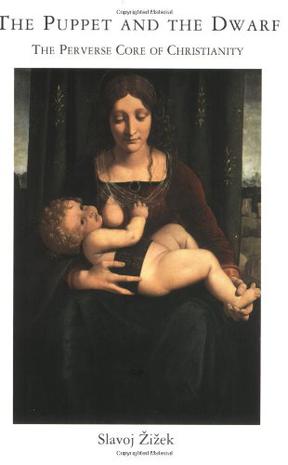Review
"... Zizek mixes Pauline speculations with analyses of everything from G. K. Chesterton to chocolate eggs."
— Terry Eagleton, TLS
"The Puppet and the Dwarf is Zizek's most compelling and passionate writing on Christianity to date."
— Erik Davis, Bookforum
"A witty, informative trip ... both erudite and accessible...."
— Rick Mitchell, Leonardo Reviews
"His writing is bold, confident and contentious."
— Julian Baggini, The Philosopher's Magazine
"Quite possibly the most entertaining philosopher working today. Zizek knows how to think the unthinkable."
— Jori Finkel, Village Voice
"Slavoj Zizek may have the strongest 'brand identity'... of any cultural theorist now in the marketplace of ideas."
— Scott McLemee, The Chronicle of Higher Education
"With this book Zizek consolidates his reputation as the foremost intellectual gadfly of the postmodern cosmopolis. For anyone interested in the contemporary vogue of the 'theological turn' or theories of 'religion without God,' The Puppet and the Dwarf is indispensable reading . . . . If Socrates underwent a ten-year analysis with Jacques Lacan, the result would be Slavoj Zizek."
—Richard Wolin, Distinguished Professor of History and Comparative Literature, the Graduate Center, City University of New York
"Zizek is the first Marxist to write theology in a post-marxist, post-secular age."
— Eugene McCarraher, In These Times
"Zizek rarely fails to entertain...."
— Charles Seymour, Library Journal
Slavoj Zizek has been called "an academic rock star" and "the wild man of theory"; his writing mixes astonishing erudition and references to pop culture in order to dissect current intellectual pieties. In The Puppet and the Dwarf he offers a close reading of today's religious constellation from the viewpoint of Lacanian psychoanalysis. He critically confronts both predominant versions of today's spirituality--New Age gnosticism and deconstructionist-Levinasian Judaism--and then tries to redeem the "materialist" kernel of Christianity. His reading of Christianity is explicitly political, discerning in the Pauline community of believers the first version of a revolutionary collective. Since today even advocates of Enlightenment like Jurgen Habermas acknowledge that a religious vision is needed to ground our ethical and political stance in a "postsecular" age, this book--with a stance that is clearly materialist and at the same time indebted to the core of the Christian legacy--is certain to stir controversy.
 The Puppet and the Dwarftxt,chm,pdf,epub,mobi下载
The Puppet and the Dwarftxt,chm,pdf,epub,mobi下载 首页
首页



有点郁闷
语言详实
很有趣
还没看